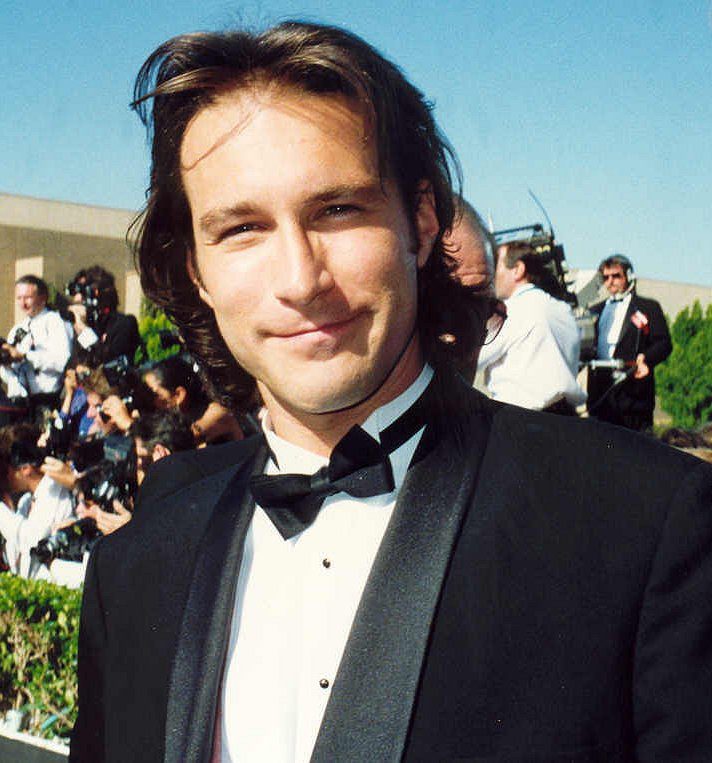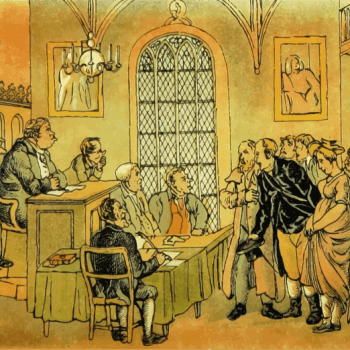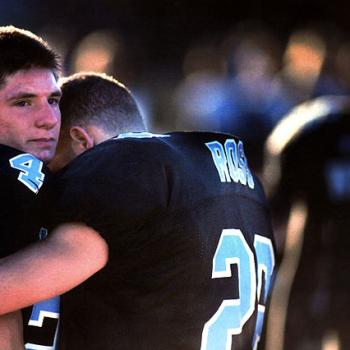The media coverage of the Democrats’ angst over whether or not President Biden should step down put a special emphasis on what Hollywood actors were thinking. The Financial Times put George Clooney’s opinion of Biden’s fitness for office on a par with that of the former House Majority Leader in its headline Nancy Pelosi and George Clooney deliver new blows to Biden re-election bid.
Actors regularly give testimony on their pet issues in congressional committees. Their own legal and personal problems get front page treatment on the media and internet news sites. Fans hang onto their every word when they appear at science fiction or fantasy conventions, asking them about the characters they play and the stories they enact. Movie stars are a big draw at the box office, as people clamor to see the next Tom Cruise or Scarlett Johansson movie.
I realize that the political opinions of George Clooney and Rosie O’Donnell carry a lot of weight because they are big funding sources, due to the parties they throw for their fellow Hollywood celebrities to give money to Democratic candidates. But the fact that movie stars–not so much journeymen actors–are paid so much demonstrates how much our culture values them.
Acting, indeed, is a legitimate art form and a worthy vocation, as I’ll discuss below. But their task is to effectively recite and make believable what someone else has written for them to say. They are not the creative source of the movies they are in. The person responsible for the film or play, the one who tells the actors what to do, is the director. True cinephiles clamor to see the next movie directed by Scorsese or Spielberg. But both directors and actors depend on the script, which gives the dialogue, creates the characters, says what the camera should show, and dreams up the story. Though writers are the ultimate creative sources, they get almost no attention from the public! (The exception today is Taylor Sheridan, whose string of successful TV series such as Yellowstone, 1883, and Tulsa King, may be drawing new attention to the filmwriting craft.)
But actor John Corbett, after a successful 30-year career (e.g., starring in My Big Fat Greek Wedding and Sex and the City), is offering a different perspective on the acting vocation. Leena Nasir of the Daily Caller reports on comments he made on David Spade and Dana Carvey’s “Fly on the Wall” podcast.
“I can reveal now I picked the [expletive] wrong thing to do with my life,” he said. “It’s been unfulfilling.”
“I picked something to do with my whole life for my fulfillment of my work life, which is, ‘Dude, stand here, say this, put this on, look this way, say it faster, cut your hair like this,” Corbett said. “You feel like a puppet.”
As an actor, he said, “I’m not part of any creative process.”
Corbett is a good actor, racking up Golden Globe, Emmy, and Screen Actors Guild nominations. And he has had a lucrative career. He has fame and fortune. But that isn’t the point.
“I’m just telling you, I made a lot of money. I live in a beautiful home. People come to me in every [expletive] restaurant I go in. I’m a friend of the world,” he said.
“But as far as a fulfilling creative work life, I didn’t write one [expletive] line. I didn’t write one joke to make people laugh. So it’s been unfulfilling on that level.”
“You know, there were some good times here and there, but most of it’s sitting, waiting for them to fucking knock on your door to go, ‘Hey, we need you to come back and say that thing again,’” Corbett said on the podcast.
“And to me, man, it’s such a boring [expletive] life.”
I know it’s hard to feel sorry for someone who is fabulously wealthy, lives on a ranch in California, and is married to Bo Derek, but I do feel sorry for him.
First of all, he is too hard on the acting profession. It is a true art form. It’s difficult portraying a character different from yourself, requiring talent and craft. Not everyone can do that. More importantly, acting can be a God-given vocation, a way to love and serve your neighbors by entertaining them and perhaps moving them by your art.
But St. Paul’s exhortation applies to people in all vocations: “I say to everyone among you not to think of himself more highly than he ought to think” (Romans 12:3). To his credit, Corbett does not do that. In general, the public does think of actors–as well as professional athletes, online influencers, and other celebrities–more highly than they ought to think. That’s not necessarily the entertainers’ fault, unless they believe their own hype; rather, it’s ours.
Garbage collectors and hotel housekeepers, farmers and factory workers, truck drivers and technicians don’t have the remuneration or the social status of celebrities, though their service to their neighbors is far more vital. Ironically, vocations that the world values the most by lavishing on them honor and money and the ones that are most necessary for human life are wildly out of sync.
Another important point that emerges from Corbett’s regrets about his career is that vocations are not always meant to be “fulfilling.” Often they are, and this is an extra blessing. But, as many who hold those more necessary but less appreciated vocations know, this is not always the case. Contrary to what many people expect, vocation is not about self-fulfillment–it’s often more about self-denial; rather, it is about the neighbor.
Not that God is oblivious to our need for fulfillment. That can come from our vocations in the other estates: the family (marriage, parenthood), the church (Corbett is a practicing Catholic), and the state (which perhaps explains why so many actors channel their energy into politics).
Can you make a wrong choice in your vocation, as Corbett is lamenting? Remember that vocation is not, strictly speaking, a choice. Though we make choices in the course of finding our vocations (for a while, Corbett was pursuing a career in a country music band, which would probably seem to him more directly “creative”), the word “vocation” means “calling,” and it is based in the conviction that God calls us to serve where He wants us to serve.
He leads us into our work, our marriages, our parenting, our citizenship. He may lead us from one position to another over the course of our lives, and he does so through the ordinary course of finding such things, through doors that open and doors that slam in our face. But we are to love and serve the neighbors whom God brings to us in our multiple vocations that we hold here and now.
So cheer up, John Corbett. Reorient your attitude. Your life wasn’t wasted just because you didn’t like your job.
Photo: John Corbett by Alan Light, CC BY 2.0 <https://creativecommons.org/licenses/by/2.0>, via Wikimedia Commons

















